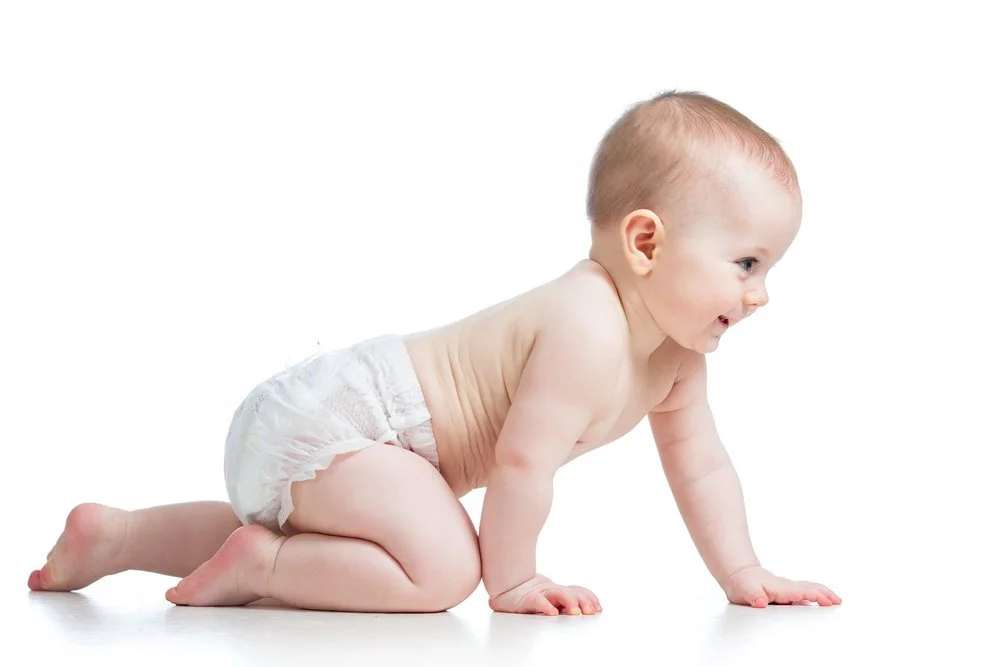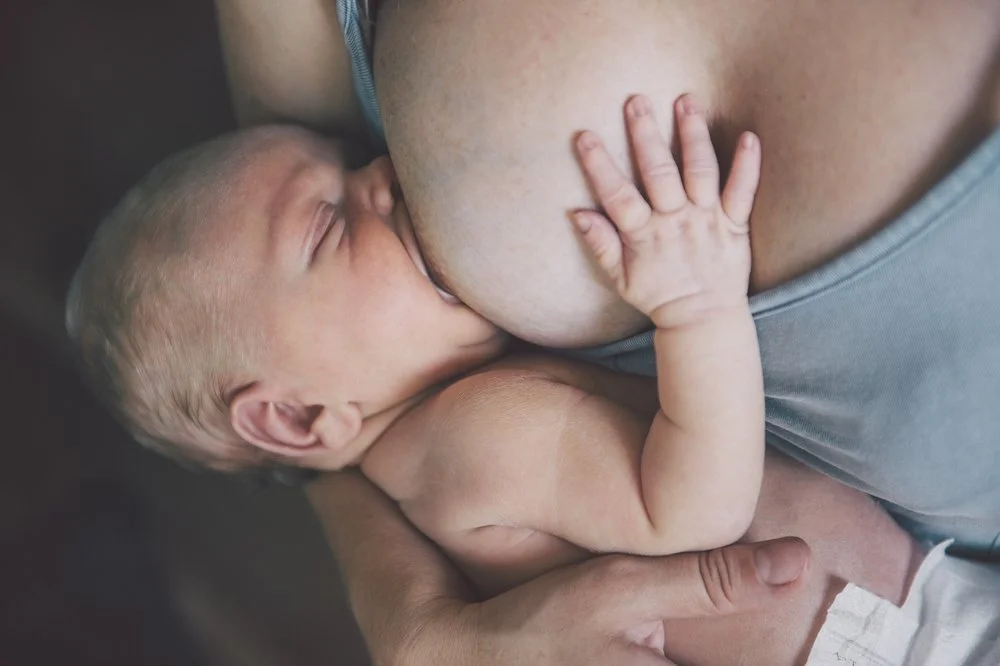Torticollis, Plagiocephaly, and Body Tension
Does your baby prefer to look in one direction over the other? Are they developing a flat spot (plagiocephaly) on their head? As baby’s heads are very soft and malleable, when they spend too much time on one side or in one position, they can develop a flat spot on their head. Addressing the underlying cause (including tension in their body, not just their neck), and implementing positioning strategies, we can help to re-mould their head and ensure they develop their posture and motor skills with symmetry.
Does your baby's body often look like they are in a “C-shape” when they are lying down?
Does your baby seem uncomfortable in their own body? Hate tummy time?
Has your baby mastered a new skill, but only on one side/in one direction (e.g. rolling?)
Tension in the body can contribute to discomfort and difficulty with motor skills, like rolling and tummy time. We will assess and treat the WHOLE baby to ensure they develop with ease and symmetry in all their skills.
Oral Ties
Does your baby have a tongue tie, lip tie or cheek ties? Did you know that manual therapy or "bodywork" can help BEFORE AND AFTER you do a release? Decreasing mouth/neck/body tension BEFORE a release can help make the procedure easier for the provider with possible improved outcomes. Therapy AFTER can also help your baby maximize their new mobility and function.
The tongue and mouth are also connected to the whole body. We take a “whole body” approach to treating tension and ties, and will provide a comprehensive assessment of tension, posture, and gross motor skills to ensure we are treating the whole baby, and not just their tongue.
Reflux, gassiness, constipation
We often think of these issues as "normal", but just because they're COMMON, doesn't mean they're normal. Decreasing tension throughout the body can help make your baby feel more comfortable and more settled.
Gross Motor Development
Infant development is one of our passions. We know that babies develop their motor skills within ranges, and there are general guidelines at which age we expect to see a skill develop. Developmental milestones are skills that most babies (75% or more) can do by a certain age.
For various reasons, some babies may need a little help to achieve these developmental milestones, which may include:
body tension or asymmetry
illness or underlying medical condition
muscle tone (hypo or hypertonia)
temperament
opportunity to move and explore
Whether you are concerned about a particularly milestone, or whether you are simply curious about milestones, we can help!
We can provide a comprehensive assessment of your baby’s development and offer developmental play suggestions to help continue to promote their development.
Most parents are typically already playing with their babies, so if you are looking to make that time "Purposeful Play" then let us know and we are happy to help!
Please reach out if you have questions about your baby's early motor development.
Breastfeeding Support
Breast feeding is one of baby’s first motor skills. Tension through the body, neck, face and mouth, can impact a baby’s ability to effectively feed.
“Body work” where we assess and provide gentle manual treatment to address fascial tension, together with coaching and positioning for effective latch, can help to improve your breastfeeding experience.
We work together with community partners, such as lactation consultants and physicians, to provide holistic and comprehensive support.
Common signs that tension can be impacting feeding include:
shallow and/or painful latch
fussiness at the breast
difficulty feeding from on one side
clicking when feeding
blisters on the lips or a white film on the tongue after feeding




